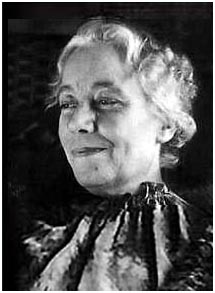Related Research Articles

Affection or fondness is a "disposition or state of mind or body" commonly linked to a feeling or type of love. It has led to multiple branches in philosophy and psychology that discuss emotion, disease, influence, and state of being. Often, "affection" denotes more than mere goodwill or friendship. Writers on ethics generally use the word to refer to distinct states of feeling, both lasting and temporary. Some contrast it with passion as being free from the distinctively sensual element.
Personality psychology is a branch of psychology that examines personality and its variation among individuals. It aims to show how people are individually different due to psychological forces. Its areas of focus include:
In psychoanalytic theory, the id, ego and superego are three distinct, interacting agents in the psychic apparatus, defined in Sigmund Freud's structural model of the psyche. The three agents are theoretical constructs that Freud employed to describe the basic structure of mental life as it was encountered in psychoanalytic practice. Freud himself used the German terms das Es, Ich, and Über-Ich, which literally translate as "the it", "I", and "over-I". The Latin terms id, ego and superego were chosen by his original translators and have remained in use.
Castration anxiety is an overwhelming fear of damage to, or loss of, the penis—a derivative of Sigmund Freud's theory of the castration complex, one of his earliest psychoanalytic theories. The term refers to the fear of emasculation in both a literal and metaphorical sense.
Parental alienation is a theorized process through which a child becomes estranged from one parent as the result of the psychological manipulation of another parent. The child's estrangement may manifest itself as fear, disrespect or hostility toward the distant parent, and may extend to additional relatives or parties. The child's estrangement is disproportionate to any acts or conduct attributable to the alienated parent. Parental alienation can occur in any family unit, but is claimed to occur most often within the context of family separation, particularly when legal proceedings are involved, although the participation of professionals such as lawyers, judges and psychologists may also contribute to conflict.
Neo-Freudianism is a psychoanalytic approach derived from the influence of Sigmund Freud but extending his theories towards typically social or cultural aspects of psychoanalysis over the biological.
Coping refers to conscious strategies used to reduce unpleasant emotions. Coping strategies can be cognitions or behaviors and can be individual or social. To cope is to deal with and overcome struggles and difficulties in life. It is a way for people to maintain their mental and emotional well-being. Everybody has ways of handling difficult events that occur in life, and that is what it means to cope. Coping can be healthy and productive, or destructive and unhealthy. It is recommended that an individual cope in ways that will be beneficial and healthy. "Managing your stress well can help you feel better physically and psychologically and it can impact your ability to perform your best."
In Freudian Ego psychology, psychosexual development is a central element of the psychoanalytic sexual drive theory. Freud believed that personality developed through a series of childhood stages in which pleasure seeking energies from the child became focused on certain erogenous areas. An erogenous zone is characterized as an area of the body that is particularly sensitive to stimulation. The five psychosexual stages are the oral, the anal, the phallic, the latent, and the genital. The erogenous zone associated with each stage serves as a source of pleasure. Being unsatisfied at any particular stage can result in fixation. On the other hand, being satisfied can result in a healthy personality. Sigmund Freud proposed that if the child experienced frustration at any of the psychosexual developmental stages, they would experience anxiety that would persist into adulthood as a neurosis, a functional mental disorder.

In psychology, womb envy denotes the envy that men may feel of the biological functions of the female. The neo-Freudian psychiatrist Karen Horney (1885–1952) proposed this as an innate male psychological trait. These emotions could fuel the social subordination of women, and drive men to succeed in other areas of life, such as business, medicine, law, and politics. Each term is analogous to the concept of female penis envy presented in Freudian psychology. In this they address the gender role social dynamics underlying the "envy and fascination with the female breasts and lactation, with pregnancy and childbearing, and vagina envy [that] are clues and signs of transsexualism and to a femininity complex of men, which is defended against by psychological and sociocultural means".
In evolutionary psychology, the Cinderella effect is the phenomenon of higher incidence of different forms of child abuse and mistreatment by stepparents than by biological parents. It takes its name from the fairy tale character Cinderella, which is about a girl who is mistreated by her stepsisters and stepmother. Evolutionary psychologists describe the effect as a byproduct of a bias towards kin, and a conflict between reproductive partners of investing in young that are unrelated to one partner.
Interpretation of Schizophrenia is a book by Italy-born American psychiatrist Silvano Arieti in which the author sets forth demonstrative evidence of a psychological etiology for schizophrenia.
In psychology, an affectional bond is a type of attachment behavior one individual has for another individual, typically a caregiver for their child, in which the two partners tend to remain in proximity to one another. The term was coined and subsequently developed over the course of four decades, from the early 1940s to the late 1970s, by psychologist John Bowlby in his work on attachment theory. The core of the term affectional bond, according to Bowlby, is the attraction one individual has for another individual. The central features of the concept of affectional bonding can be traced to Bowlby's 1958 paper, "The Nature of the Child's Tie to his Mother".
Basic anxiety is a term used by psychoanalytic theorist Karen Horney. She believed that neurosis resulted from basic anxiety caused by interpersonal relationships. Her theory proposes that strategies used to cope with anxiety can be overused, causing them to take on the appearance of needs. According to Horney, basic anxiety could result from a variety of things including, "…direct or indirect domination, indifference, erratic behavior, lack of respect for the child's individual needs, lack of real guidance, disparaging attitudes, too much admiration or the absence of it, lack of reliable warmth, having to take sides in parental disagreements, too much or too little responsibility, over-protection, isolation from other children, injustice, discrimination, unkept promises, hostile atmosphere, and so on and so on."
In psychology, narcissistic injury, also known as narcissistic wound or wounded ego, is emotional trauma that overwhelms an individual's defense mechanisms and devastates their pride and self-worth. In some cases, the shame or disgrace is so significant that the individual can never again truly feel good about who they are. This is sometimes referred to as a "narcissistic scar".
Feminine psychology or the psychology of women is an approach that focuses on social, economic, and political issues confronting women all throughout their lives. It emerged as a reaction to male-dominated developmental theories such as Sigmund Freud's view of female sexuality. The original work of Karen Horney argued that male realities cannot describe female psychology or define their gender not because they are not informed by girls' or women's experiences. Theorists, like Horney, claimed this new feminist approach of women's experiences being different than men's was required, and that women's social existence was crucial in understanding their psychology. It is suggested in Dr. Carol Gilligan's research that some characteristics of female psychology emerge to comply with the given social order defined by men and not necessarily because it is the nature of their gender or psychology.

Karen Horney was a German psychoanalyst who practiced in the United States during her later career. Her theories questioned some traditional Freudian views. This was particularly true of her theories of sexuality and of the instinct orientation of psychoanalysis. She is credited with founding feminist psychology in response to Freud's theory of penis envy. She disagreed with Freud about inherent differences in the psychology of men and women, and like Adler, she traced such differences to society and culture rather than biology.

In classical psychoanalytic theory, the Oedipus complex refers to a son's sexual attitude towards his mother and concomitant hostility toward his father, first formed during the phallic stage of psychosexual development. A daughter's attitude of desire for her father and hostility toward her mother is referred to as the feminine Oedipus complex. The general concept was considered by Sigmund Freud in The Interpretation of Dreams (1899), although the term itself was introduced in his paper A Special Type of Choice of Object made by Men (1910).
Penis envy is a stage in Sigmund Freud's theory of female psychosexual development, in which young girls experience anxiety upon realization that they do not have a penis. Freud considered this realization a defining moment in a series of transitions toward a mature female sexuality. In Freudian theory, the penis envy stage begins the transition from attachment to the mother to competition with the mother for the attention and affection of the father. The young boy's realization that women do not have a penis is thought to result in castration anxiety.
Psychodynamic models of emotional and behavioral disorders originated in a Freudian psychoanalytic theory which posits that emotional damage occurs when the child's need for safety, affection, acceptance, and self-esteem has been effectively thwarted by the parent.
Interpersonal acceptance-rejection theory (IPARTheory), was authored by Ronald P. Rohner at the University of Connecticut. IPARTheory is an evidence-based theory of socialization and lifespan development that attempts to describe, predict, and explain major consequences and correlates of interpersonal acceptance and rejection in multiple types of relationships worldwide. It was previously known as "parental acceptance-rejection theory" (PARTheory). IPARTheory has more than six decades of research behind it, therefore, in 2014, the name was changed to "IPARTheory" because the central postulates of the theory generalize to all important relationships throughout the lifespan.
References
- ↑ Horney, Karen. The neurotic personality of our time. WW Norton & Company, 1994.
- ↑ Carducci, Bernardo J. (2009). The Psychology of Personality: Viewpoints, Research, and Applications, Second Edition. Malden, MA: John Wiley & Sons. p. 172. ISBN 9781405136358.
- ↑ Sollod, Robert N.; Monte, Christopher F. (2009). Beneath the Mask: An Introduction to Theories of Personality. Hoboken, NJ: John Wiley & Sons. p. 324. ISBN 9780471724124.
- 1 2 Hergenhahn, B. (2004). An Introduction to the History of Psychology, Fifth Edition. Belmont, CA: Thomson Wadsworth. p. 520. ISBN 0534554016.
- Personality Theories page on Karen Horney
- Women's Intellectual Contributions to the Study of Mind and Society: Karen Horney